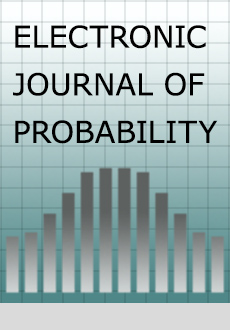Abstract
Within a contest there is some probability $M_i(t)$ that contestant $i$ will be the winner, given information available at time $t$, and $M_i(t)$ must be a martingale in $t$. Assume continuous paths, to capture the idea that relevant information is acquired slowly. Provided each contestant's initial winning probability is at most $b$, one can easily calculate, without needing further model specification, the expectations of the random variables $N_b =$ number of contestants whose winning probability ever exceeds $b$, and $D_{ab} =$ total number of downcrossings of the martingales over an interval $[a,b]$. The distributions of $N_b$ and $D_{ab}$ do depend on further model details, and we study how concentrated or spread out the distributions can be. The extremal models for $N_b$ correspond to two contrasting intuitively natural methods for determining a winner: progressively shorten a list of remaining candidates, or sequentially examine candidates to be declared winner or eliminated. We give less precise bounds on the variability of $D_{ab}$. We formalize the setting of infinitely many contestants each with infinitesimally small chance of winning, in which the explicit results are more elegant. A canonical process in this setting is the Wright-Fisher diffusion associated with an infinite population of initially distinct alleles; we show how this process fits our setting and raise the problem of finding the distributions of $N_b$ and $D_{ab}$ for this process.
Citation
David Aldous. Mykhaylo Shkolnikov. "Fluctuations of martingales and winning probabilities of game contestants." Electron. J. Probab. 18 1 - 17, 2013. https://doi.org/10.1214/EJP.v18-2422
Information





